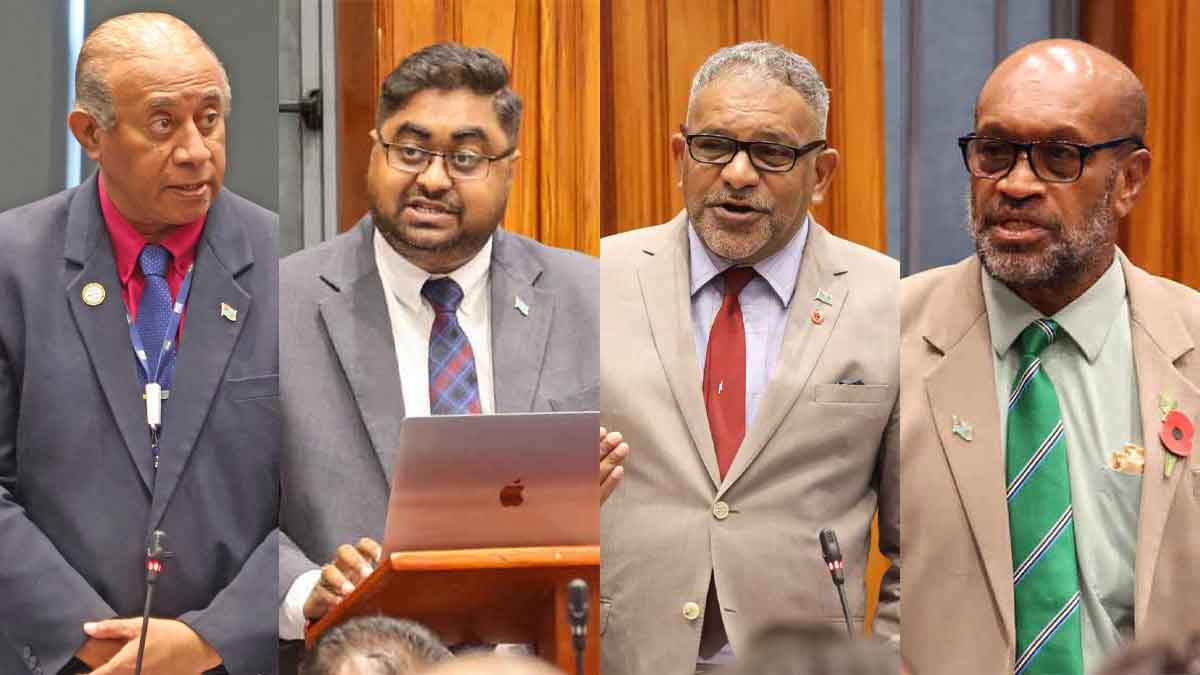A special audit in 2023 found that the Fiji Road Authority approved cost changes and project escalations totaling $405 million – about 10 percent of the national budget – with many approvals made on the fly and without proper oversight.
Public Works and Transport Minister Ro Filipe Tuisawau made the comments, responding to concerns raised by opposition MPs Ketan Lal and Faiyaz Koya, who said thousands of Fijians continue to face daily challenges on deteriorating and unsafe roads.
Lal and Koya cite potholes, uneven surfaces and poorly designed bumps that damage vehicles, delay travel and endanger lives.
Lal criticizes the fact that the FRA has been overburdened and understaffed since it took back important functions from the engineering firm MWH in 2016.
He points to the severe shortage of engineers, technical staff and project managers that results in roads being built without proper drainage, potholes that quickly reappear after repairs, and bridges that take years to complete.
Lal also raises concerns about the prevalence of oversized and inconsistent road humps across the country and calls for a uniform national standard for their height, width, placement and signage.
He points to the lack of coordination between the FRA and local councils, which he said has led to flooded drains, broken footpaths and inadequate street lighting in communities.
Lal urges the government to conduct a performance audit of the FRA, invest in long-term infrastructure planning and prioritize land and sea roads.
He also calls for greater investment in training local engineers to reduce dependence on costly foreign consultants.
The MWH agreement was discontinued in 2016 during the FijiFirst government era.
MP Faiyaz Koya echoes Lal's concerns and praises the Parliamentary Standing Committee for its detailed report.
He is pushing for greater oversight of local contractors, pointing to ongoing bitumen supply issues that could further impact road quality.
Koya cites the condition of the Nadi Airport-Denarau road – a major tourist route – as a clear example of roads that require consistent maintenance, adequate lighting and visible road markings.
Both MPs emphasize that Fiji's roads are a lifeline for the economy and daily life, and are calling for better workmanship, stronger oversight and improved coordination between authorities.
They are calling on the government and the FRA to ensure Fiji's roads are durable – safe, durable and capable of supporting the country's growth.
Ro Filipe firmly rejects the criticism and emphasizes that significant progress has been made under the current government.
He points to serious failures in governance and financial management dating back to 2021, before the appointment of the current FRA board.
The results were presented in the FRA performance report.
According to Ro Filipe, the audit found significant problems, including the lack of feasibility studies, changes to the scope of the project without re-tendering and the payment of cost escalation claims without independent verification.
He says retention monies owed to contractors were also used to cover cash flow shortfalls and no provisions were made for emergency work.
Ro Filipe adds that when the new FRA board took office, the authority faced a severe cash flow crisis as the FRA had spent its entire capital budget within six months.
This prompted the government to secure a $50 million overdraft facility in early 2023 to keep the FRA operational.
Despite these challenges, according to Ro Filipe, the government has made significant improvements and around 90 percent of the road construction results are now considered positive.
He adds that the reforms include stronger project planning and contract management, a more robust supply chain for aggregates and bitumen, improved training and monitoring of contractors, improved payment systems and better coordination with EFL, TFL and other ministries.
The minister also says the FRA is expected to issue new tenders and contracts by June 2026.
Opposition MP Jone Usamate defends the previous government's record and highlights infrastructure development over the last 16 years.
It recognizes structural challenges within the FRA, which was originally designed to outsource work but has since taken on operational functions.
Usamate emphasizes the importance of capacity, quality control and building internal expertise in project management and engineering.
He also praises the FRA's decision to outsource vegetation control and road maintenance to rural communities, saying it provides valuable revenue opportunities.
Usamate is promoting the expansion of similar initiatives to informal urban settlements in Suva and Lautoka.
